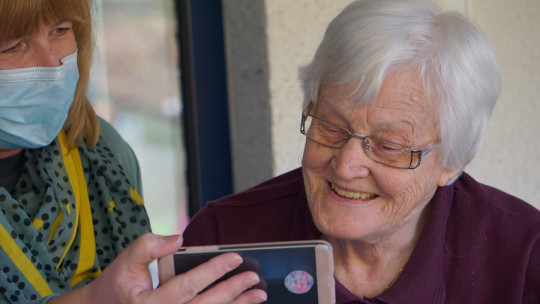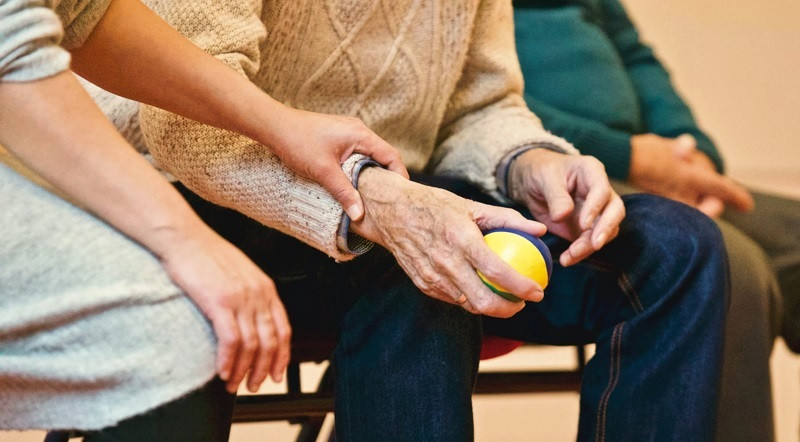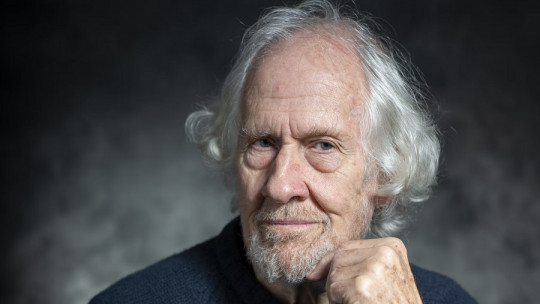
In the current era, life expectancy has increased significantly compared to past times and is expected to continue increasing considerably in the coming decades thanks to advances in the field of medicine and other health specialties, in the area of education. , technology and science.
On the other hand, the high prevalence of elderly people poses new challenges for health professionals as there is a greater number of cases with different pathologies, including mental health.
Within this framework, Psychogerontology and psychogeriatrics have become increasingly relevant. due to its great importance in helping the field of psychology to promote well-being and improve the quality of life of older people. That is why this article will briefly explain what this specialty in the field of psychology consists of.
What is psychogerontology?
Psychogerontology is a specialty in the field of psychology and psychiatry that has been gaining greater importance in the 21st century so that psychologists can meet the demands of a population with a increasing prevalence of elderly people.
This discipline is focused on the research and study of people’s aging and using intervention and treatment methods that help prevent and/or delay cognitive deterioration and also promote good mental health and well-being of people of an age. advanced age, as well as their relatives.
When carrying out the intervention in these cases, it is most convenient that it be in a family, social and community context that adjusts as closely as possible to their daily life.
This specialty of psychology is normally carried out by a multidisciplinary team made up of psychologists, geriatric doctors and psychiatrists, nurses, physiotherapists, occupational therapists and healthcare assistants, all of them specialized in the field of gerontology, who work with an adapted biopsychosocial model. to the needs of each patient.
Functions of psychogerontology professionals
A psychogerontologist has the fundamental objective of promote good mental health, to the extent possible, during the aging process of the people you care for.
It is important to highlight that it is currently known that the human brain has a plasticity that allows people to learn throughout their lives, so that when they age they are still capable of optimizing their physical and cognitive abilities and, adapting their environment According to their needs, they can compensate for those faculties that are in decline.
Furthermore, treatments in the field of psychogerontology aimed at promoting physical activity (through regular, light physical exercise), mental activity (through tasks that require the use of cognitive faculties, such as memory), and emotional activity (through psychological support). and promoting their own emotional regulation abilities) have shown great effectiveness in the progress of biopsychosocial functioning of elderly people.
Among the functions of psychogerontology professionals are the following:

Who is helped in the area of psychogerontology?
In the field of psychoentology We work mainly with elderly people, although it also tends to facilitate a better evolution in the process when working with their caregivers and/or family members..
It is also important to adapt the context in which the elderly people with whom the intervention is carried out live and carry out their daily activities, so that they can function in a facilitating environment that helps ensure that the necessary resources are available to them in their environment. so that you can face your daily life in the best possible way. All this with the help of family members and/or caregivers.
1. Elderly people
The population on which psychogerontology primarily focuses is people of advanced age and the approach varies depending on the degree of autonomy of the people, which is usually related to their physical and mental health.
1.1 Primary aging: normative
People who are going through a normative aging process, The changes suffered are usually progressive and very common, since they occur in anyone from a certain age., although he enjoys good health, due to the passage of years. In these cases they usually have levels of psychological, physical and social functioning adjusted to their age.
In these cases, the role of psychogerontologists is oriented toward primary prevention.which consists of promoting active aging by giving these people a series of exercises and tasks that keep their brain and body active in order for them to remain as independent as possible and to prevent possible physical and cognitive deterioration.
1.2 Secondary or tertiary aging: non-normative or pathological
This aging process is what those people of an advanced age and, sometimes, not so advanced age suffer, for which their psychological, physical and social capacities are deteriorated to the point of not being appropriate for their age, so that they limit their autonomy. For example, it occurs in older people who develop Alzheimer’s disease.
In these cases, the objective of psychogerontology professionals would be focused on a type of secondary or tertiary prevention, depending on the level of deterioration of the person to be treated, in order to promote the greatest well-being that is possible by guiding a series of tasks, both in the office or center and to do at home, to avoid further physical and cognitive deterioration, and to improve their quality of life.
- Related article: “Types of aging (primary, secondary and tertiary)”
2. Caregivers and/or family members of elderly people
In the field of psychogerontology, it is also important to work with caregivers and family members who live with or are in charge of an elderly person. Especially if that person is suffering from a pathological physical and cognitive deterioration that prevents them from having autonomy in line with their age.
It is very helpful for caregivers of the elderly to undergo continuous training with professionals. simultaneously with the treatment with the person you care for. In this training, it must be ensured that caregivers learn a series of support guidelines that facilitate the performance of the tasks entrusted by professionals to the elderly person, in order to promote their autonomy and prevent a deterioration of their physical and mental abilities. .
These guidelines must be adapted depending on whether the care of the elderly person is carried out at home or in an institutional center, such as a nursing home, where the resources and help available are different.
Besides, It is important to provide psychoeducation to both family members and caregivers of elderly people, where the way in which normative and pathological aging should develop is explained in a comprehensive manner. Likewise, if your family member or person you care for is suffering from pathological aging, it would be necessary to explain to them what the pathologies they are suffering from consist of and how to treat and delay their evolution, teaching them the guidelines they should follow to help in the process.
It is also essential provide psychological support to all people with whom the treatment process is carried out (elderly people with or without pathologies, family members and caregivers).
- You may be interested: “Family therapy: types and forms of application”
Areas of professional performance
Intervention in the field of psychogerontology can be carried out in various contextshighlighting these as the most common:
- Private clinics.
- Health centers and hospitals.
- Residences for the elderly.
- Address of the person with whom the intervention and support is carried out.
- Centers subsidized by the local council.
- Centers of psychogerontology associations.
- Retiree Association Center.
- Universities of experience for older people.
- Research centers oriented to the field of psychogerontology.
Finally, it is important to comment that There are other names to refer to the area of mental health professionals specialized in treating older people. (psychogeriatrics, psychiatry or geriatric psychology and gerontopsychiatry) and that, currently, the differences between them have not yet been highlighted, giving rise to possible confusion, so that they are often used interchangeably.








